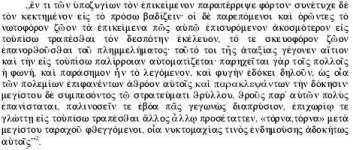@ Nik
Although I keep my precautions,
The generic idea of what I read in your post is this,
correct me if wrong,
There is no pure 'race' today in Balkans,
some spoted tiny areas might have higher levels of certain 'race'
Roman occupation and Slavic invasions shifted population to a more Central Europe and North mark,
as also change populations to different cultures (Antes) (Byzantium)
that is a fact. nobody can disagree,
I don't know what you intend by 'race', but we are indeed Europeans and Caucasians. Perhaps you mean subraces, like Dinaric, Mediterranean, Alpine, Baltic, etc. in which again we Balkanites are a blend of them all, some more and some less in specific ones.
Well yeah, the invaders came from the North, so people obviously were forced to go South. Later on of course there were movements in all directions but not as dramatic as a bunch of barbarians chasing you for being Roman/non-Slavic lol
I can speak about Albanians that the majority of us have a more Northern origin than our current location and the 37 markers dna test seem to support that. We mostly replaced each other with the final destinations being Greece and then from there to Italy.
Greeks did the same by going to Italy, so there you have a Northern shift without even having to include Slavs and Vlachs as a factor.
But I doupt about the R1a in Central Greece being new from Slavic invasions,
I believe existed there the times of Dorians and Greek unification.
let me keep my precautions in that,
Nik
All nations today in Aimos peninsula are new, are Neo-nations
all created after the Roman soup,
by Slavic invasions,collapse of East Roman empire, Latinocracy era, Ottoman empire, even Austro-Hungarian empire
and the new Unification movements in balkans, sprung after Greek revolt, the earliest in Balkans.
call us Neo-Greeks, we do not mind, we are,
Personally, I wish that was the case but the R1a is mostly of recent North-East European origin not the ancient one that was found in the Thracian.
If anyone is curious enough, go and check the Albanian bloodline group and notice how in the Minorities section the vast majority of Greeks and Vlachs are I2a-Din and R1a, yet they're the most hardcore Greeks.
About the neo-nations, Yes and No. There have been Albanians, Serbs, Greeks, Bulgarians, Croatians for 1000 years or more but of course you can't expect Albanians for instance to have been strong and numerous enough to compete with the Byzantine or Ottoman Empire and remain completely independent inside a nation called specifically Albania. Unless Neo means 2000 years or less than yes, we are all neo nations but not so neo people.
In the end, it's the people that matter even though politics and religion are known to have manipulated people's decisions in the Balkans.
Personally, I'm only interested in the people not the nation or the language. Those can be changed easily just like political parties or football clubs. Look at the guy in your picture for example, reddish beard, Albanian looking, radical Greek, all is missing is a genetic test and if he ends up being I2a and R1a like most, it would be the perfect script for a comedy movie on the Balkans.




